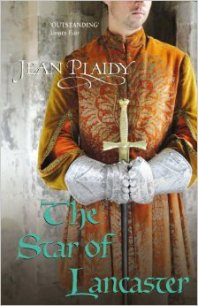Famous Men of The Middle Ages - Haaren John Henry (читаем бесплатно книги полностью .txt) 📗
At last one day, while singing one of Richard's favorite songs near the walls of the castle where the king was confined, he heard the song repeated from a window. He recognized the voice of Richard. From the window Richard told him to let the English people and the people of Europe know where he was confined, and the minstrel immediately went upon his mission.
Soon Europe was astounded to learn that brave Richard of England, the great champion of Christendom, was imprisoned. The story of Blondel is probably not true, but what is true is that England offered to ransom Richard; that the Pope interceded for him; and that finally it was agreed that he should be given up on the payment of a very large sum of money. The English people quickly paid the ransom and Richard was freed.
The king of France had little love for Richard, and Richard's own brother John had less. Both were sorry that Ceur de Lion was at liberty.
John had taken charge of the kingdom during his brother's absence, and hoped that Richard might pass the rest of his days in the prison castle of Leopold .
As soon as Richard was released, the French king sent word to John, "The devil is loose again." And a very disappointed man was John when all England rang with rejoicing at Richard's return.
Upon the death of Richard, in 1199, Arthur, the son of his elder brother Geoffrey, was the rightful heir to the throne. John, however, seized the throne himself and cast Arthur into prison. There is a legend that he ordered Arthur's eyes to be put out with red hot irons. The jailor, however, was touched by the boy's prayer for mercy and spared him. But Arthur was not to escape his uncle long. It is said that one night the king took him out upon the Seine in a little boat, murdered him and cast his body into the river.
Besides being a king of England , John was duke of Normandy , and Philip, king of France , now summoned him to France to answer for the crime of murdering Arthur. John would not answer the summons and this gave the king of France an excuse for taking possession of Normandy . He did so, and thus this great province was lost forever to England . Nothing in France was left to John except Aquitaine (A-qui-taine'), which had come to him through his mother.
John's government was unjust and tyrannical, and the bishops and barons determined to preserve their rights and the rights of the people. They met on a plain called Runnymeade, and there forced John to sign the famous "Magna Carta" ("Great Charter").
Magna Carta is the most valuable charter ever granted by any sovereign to his people. In it King John names all the rights which belong to the citizens under a just government, and he promises that no one of these rights shall ever be taken away from any subjects of the English king. For violating this promise one English king lost his life and another lost the American colonies.
Magna Carta was signed in 1215. A year after he signed it the king died. His son, Henry III, succeeded him.
Louis the Ninth King from 1226-1270
After the time of Barbarossa and Richard Ceur de Lion lived another great Crusading king. This was a grandson of Philip II, named Louis IX, who became sovereign of France in 1226. He was then only eleven years old, so for some years his mother ruled the kingdom.
A few years after he had begun to reign Louis decided to make his brother Alphonse the governor of a certain part of France . The nobles of the region refused to have Alphonse as governor and invited Henry III of England to help them in a revolt.
Henry crossed to France with an army to support the rebellious nobles. He was duke of Aquitaine and Gascony ; so that although he was the king in England he had to do homage to the king of France for his possessions in that country, and fight for him if called upon to do so.
Louis gathered an army and hastened to meet the English troops. He drove Henry from place to place, until at last he forced him to make terms of peace. The rebellious nobles who had invited the English king to France soon after swore allegiance to Louis and afterwards he had little trouble in his kingdom.
Once Louis was dangerously ill and his life was despaired of. Finally he was believed to be dying and his wife and chief officials gathered round his bed to await the end. Suddenly he roused himself and said in a feeble voice, "The cross! The cross!"
They laid the cross upon his heart and he clasped it fervently. For a while he slumbered. When he awoke he appeared much better. In a day or two he was entirely well. He then made a solemn vow that in thankfulness for his restoration he would go on a Crusade to the Holy Land .
Louis lived at a time when everybody was full of the Crusading spirit. A few years before he was born even the children in France and Germany started out upon a Crusade of their own. It is called in history the "Children's Crusade." Several thousand left their homes and marched toward the Mediterranean . They thought that God would open a pathway to the Holy Land for them through its waters. A number of them died of cold and hunger when trying to cross the Alps . Some reached Rome , and when the Pope saw them he told them to return home and not think of going on a Crusade until they were grown up.
It is easy to understand how in such an age people flocked to Louis' banner when he asked for volunteers to go with him on another Crusade.
In a few months forty thousand Crusaders assembled at a French port on the Mediterranean Sea . On a bright day in August, 1248, they went on board the fleet which was ready to sail. The king called to the Crusaders, "Sing in the name of God. Shout forth his praises as we sail away." Then quickly, on ship after ship, shouts of praise burst from the lips of thousands and amid the grand chorus the fleet began its voyage.
The Crusaders went to Damietta (Dam-i-et'-ta), in Egypt . Louis was so eager to land that he jumped into water up to his waist and waded ashore. He captured the city without striking a blow.
He had resolved to make war on the Moslems in Egypt rather than in the Holy Land , so when he left Damietta he marched southward.
He supposed there would be no strong force to stop his progress. However, he was mistaken, for he had not marched forty miles toward Cairo when he was attacked by a Moslem army led by the sultan of Egypt .
A great battle was fought. The Crusaders were commanded by King Louis and throughout the battle showed the utmost bravery, but they were outnumbered. Thousands were slain and the survivors retreated toward Damietta .
The Moslems pursued them and the Crusaders were obliged to surrender. Out of the forty thousand men who had left France only about six thousand now remained. Many had died of disease as well as in battle.
King Louis was among the prisoners, and the sultan of Egypt agreed to release him only upon the payment of a large ransom.




